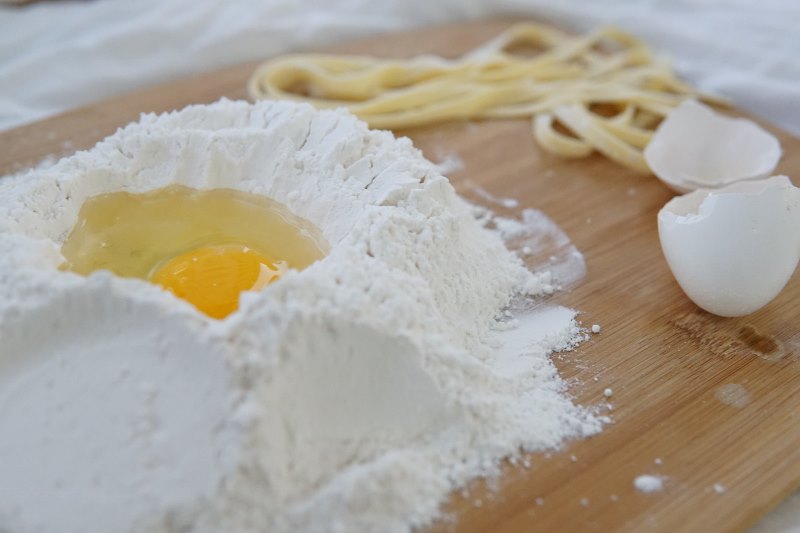I’ve always loved baking and cooking, particularly baking. Although there’s not much of that going on at the moment, what with all the dieting! And when I do my cooking and baking, particularly for things like Halloween and Christmas, I like to cook from scratch. But, as I was making my bread sauce, last Christmas, I realised that I hadn’t baked the bread that was going in the sauce. So did that still count as ‘cooking from scratch’? Probably not, I thought; but what does… Then I had to stop thinking about it, because something was starting to burn.
But I can think about it now:
Maybe the best way to work out what is cooking from scratch, is to start at the other end, with things that definitely aren’t cooking from scratch. Hopefully spotting the transition along the way.
Shop Bought
Which is simply buying the finished product in a shop, be it a cake or a meal. Clearly as far from cooking as scratch as possible, except that there are options that deliberately blur the line.
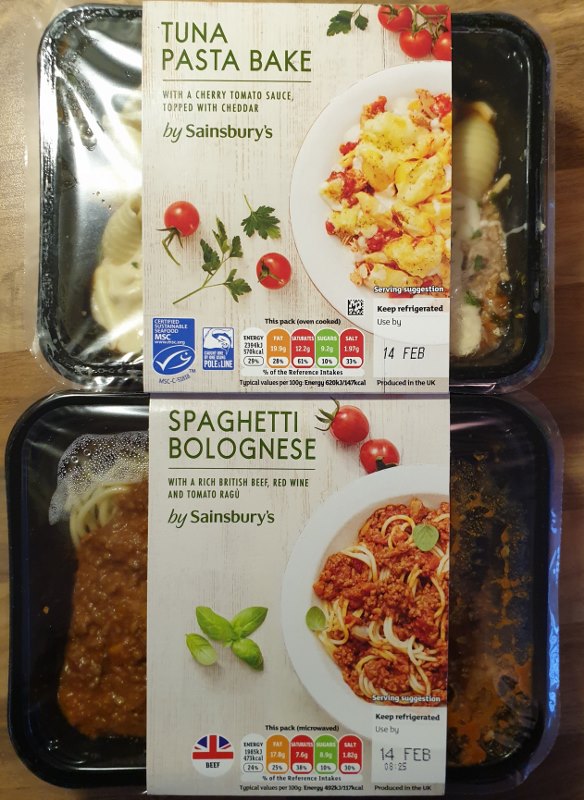
The Cook shop, in Taunton, sells ‘handmade meals for home freezers’. The idea is that Cook does the cooking, ‘using the same ingredients and techniques as you would at home.’ It’s then frozen and sold to you. The thing is, Cook also sells bakeware, of the correct dimensions, to allow you to transfer a frozen meal to a baking dish, cook it and pass it off as your own… Which brings us on to:
Food Makeover
It’s not just main meals that can get a makeover, it’s cakes as well.
Many supermarkets sell blank cakes that are specifically designed to be finished at home. While clearly not cooking from scratch, this definitely requires a greater level of input than shop bought.
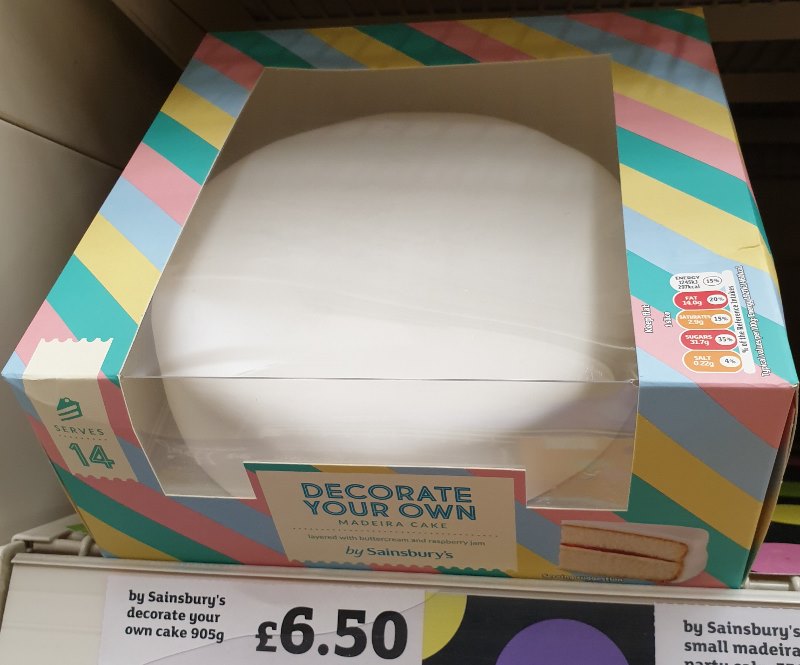
Pre-Mixed Foods
Something that needs a higher level of input still, is pre-mixed or part-prepared products. The most obvious one here is the cake mixes that you can buy. These come in many and varied forms and most require the addition of certain fresh ingredients. Maybe some milk. Possibly an egg. Could be some butter. Occasionally it might be more than one addition. So, the additions are made, the instructions are followed and the cake is made. Which is, in all honesty, pretty close to simply following a recipe in a cookbook.
It isn’t just supermarkets that offer this, either. Increasingly, mason jars full of neatly layered ingredients are being offered by home bakers, as gifts. Also by cottage industries and businesses as a viable product. They’ve even made it into baking magazines…
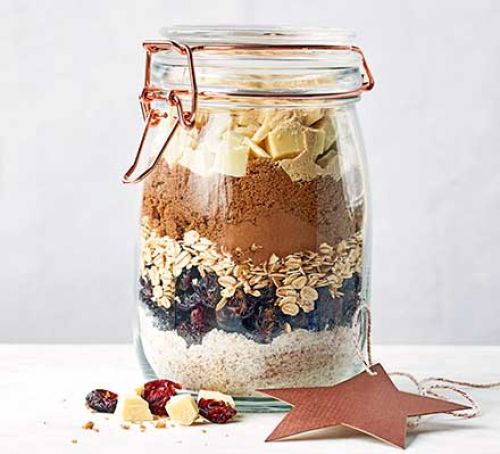
And pre-mixed foods are, by no means, limited to cakes. Who can forget the adverts for Old El Paso‘s Fajita Kits?
Semi Home Cooking
This is a new definition on me, but serves my purpose, so I’ll use it.
If you’re looking to bake a quiche or a flan or a tart and you buy the pre-cooked pastry case, and then fill it yourself with a homemade filling, this would be semi home cooking. You don’t like making and cooking pastry so, to save time, you buy pre-cooked pastry. Job’s a good ‘un.
The same might be true of one of those joints that are self basting and covered in herbs. You know, the ones that come in a tin foil baking tray, you just remove the plastic sheet of a lid and bang it in the oven. You do the rest of the meal yourself; maybe roast some potatoes and steam some veg. Semi home cooking.
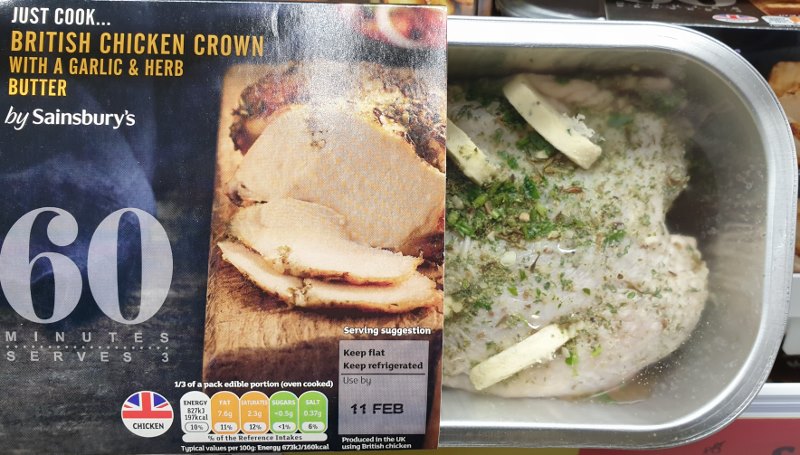
Home Cooking
This, then, would be preparing the joint of meat yourself. Adding your own seasoning and regularly basting it as it cooks. But it might involve using a stock cube for the gravy.
In terms of the pastry, it might be buying a block of pastry and then rolling it out to the shape you want and blind-baking it yourself. You might even make shortcrust pastry yourself, but you’d buy puff pastry in blocks (or pre-rolled). Because of course you know that you could make the puff pastry yourself, but you haven’t got time, this time. Next time, for sure.
I’ve been saying this for years and have never actually made puff pastry in my life!
Cooking from Scratch
But that wouldn’t work if you’re cooking from scratch.
Cooking from scratch would mean that you’ve got your own stock. Which you made from the bones and trimmings of the last time you had this meat. It means you make the gravy from this stock and the juices left over from the current joint, brought together with a bit of flour.
Cooking from scratch means that you make you own pastry. Even puff pastry…
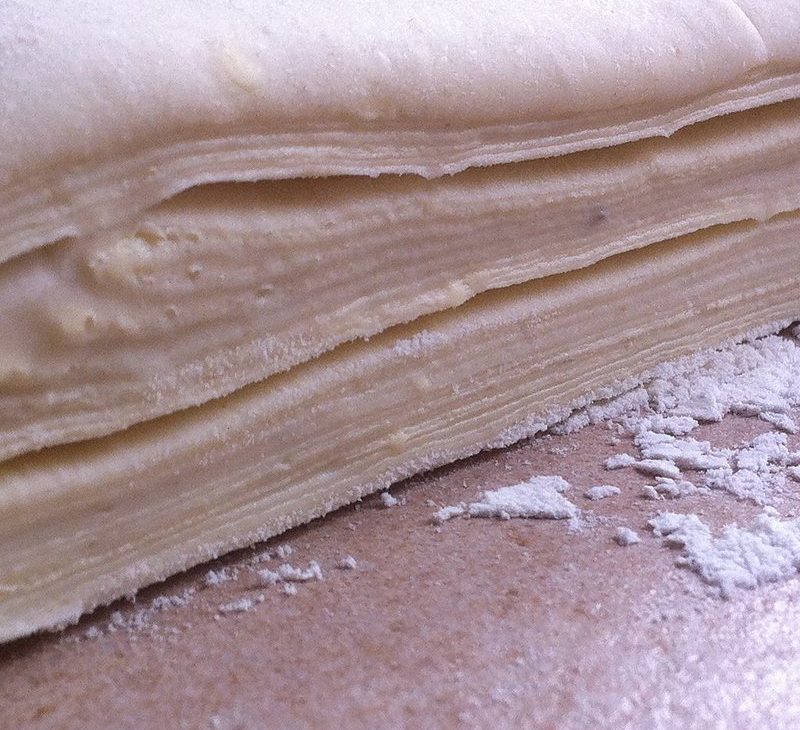
By Popo le Chien – Own work, CC BY-SA 3.0, https://commons.wikimedia.org/w/index.php?curid=38271725
Which brings us to the question of the butter that you used to make you puff pastry. Did you make that yourself?
If not, why not?!
Can you call it cooking from scratch if you bought an ingredient that you could have made at home? Where do you draw the line?
And it was this very question that distracted me while I was cooking the Christmas meal.
You see, making butter is easy. You get a tub of whipping cream and whip it until it goes ‘splot’. You’ve then got butter and buttermilk.
In theory, you get about half the weight in butter as the weight of the cream you started with. This might even be cost effective:
- 600ml Whipping Cream costs £2
- 250g Unsalted Butter costs £1.65
- 300ml Buttermilk costs 80p
And if you used 600ml of whipping cream, you could expect to get 250g of butter and 300ml of buttermilk. So spending the £2 on whipping cream gets you £2.45 worth of goods. Assuming you can find something to do with the ‘traditional’ buttermilk.
Because, to be fair, the buttermilk left over from making the butter is very different to the buttermilk from the shop, listed above. The latter is ‘cultured’ buttermilk and is made by adding lactic acid bacteria to milk. To make matters more confusing, there’s also ‘acidified’ buttermilk, where an acid like lemon or vinegar as added to milk. But, I digress.
The reality is, that making butter from cream isn’t cost effective. You’re turning £2 into £1.65. But that really isn’t the point. Cooking from scratch is often more expensive than shop bought.
This year, as most years, I baked a Christmas Cake. This year, as every year, I could have bought the biggest Christmas Cake in the Supermarket for far less than it cost me to make my own.
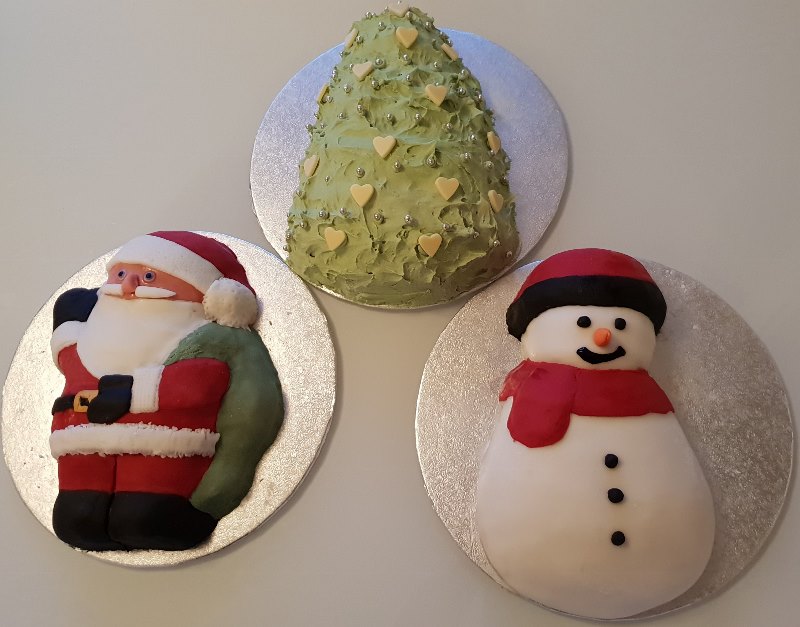
There are simple economies of scale that can’t be overcome in the UK. I can’t make my own dried fruit, I don’t have the climate. So I buy dried fruit by the packet. Factories that make Christmas Cakes for supermarkets buy dried fruit by the ton. Plus, they get it from source.
As such, the finished product in the supermarket is always cheaper than what I can make at home.
So, if cost is removed from the equation, then cooking from scratch must involve making your own butter.
But where else does this apply?
There are certain things that I could, theoretically, make or collect but can’t in reality. Things like:
- Flour
- Milk
- Eggs
- Sugar
- Rennet
- Salt
- Olive oil
- Dried fruits
Except, of course, and despite what I said a couple of paragraphs ago, I can make dried fruits!
I can buy whatever fruit that I want and dry it myself. Grapes to raisins isn’t even difficult, providing you can get three sunny days in a row. Oh, wait!
But, no; there are dehydrators that will do the job. No excuses! And if it’s okay to buy cream to make butter, it must be okay to buy grapes to make raisins.
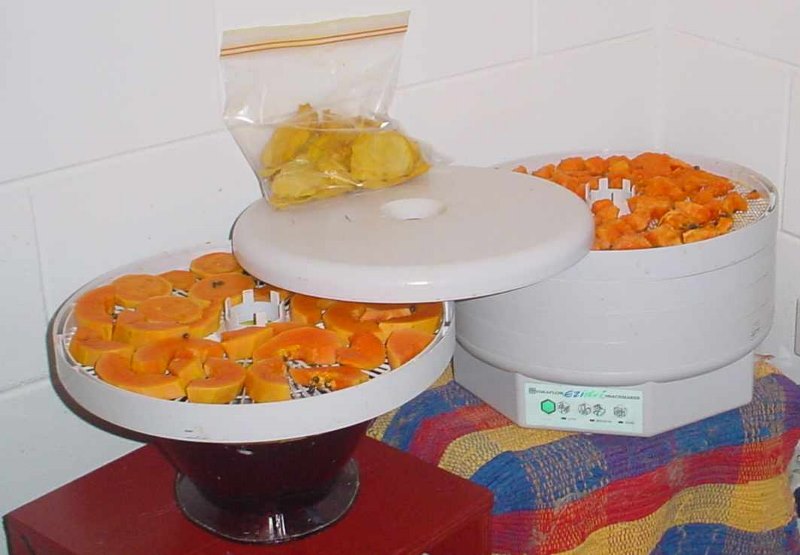
By Vassilik – Own work, CC BY-SA 3.0, https://commons.wikimedia.org/w/index.php?curid=6943919
As for the others, I don’t have enough land to own a cow, so I can’t produce my own milk. The lack of cow also means I have no access to rennet. Thankfully! While I might, just, have a big enough garden for chickens, I live in a residential area and the neighbours would not approve.
I also do not have enough land to grow enough wheat or sugar beet to meet my cooking and baking needs for flour and sugar. I don’t live in a climate that will allow olives to grow, thus ruling out my own olive oil. And, again, I don’t have the land to grow enough sunflowers or rapeseed to make the substitute oils. In terms of salt, I’m not a Geologist, and even if I was, the nearest rock salt deposits are 100s of miles away. And if anyone thinks I’m using sea water from the Bristol or English channels to get sea salt, they can think again.
There are, of course, many fruit, vegetable and salad items that I can grow at home but that’s an interesting thing. It seems perfectly okay, when cooking from scratch, to buy fresh produce from the shops; even if you could, conceivably, have grown it at home. It seems fine to buy lettuce, cress, spring onion, lambs lettuce and pea shoots from the produce aisle, take it home, mix it together in a bowl and serve it as a salad. That’s a salad, from scratch. But to buy the same ingredients, pre-mixed in a packet, shake it into a bowl and serve it, is not from scratch.
Which brings us on to salad dressings, which are typically based around the ratio of 1 part vinegar to 3 parts oil.
Did you know that you can make vinegar at home?
Well, you can. Needless to say, it’s a nightmare process and the most likely one to successfully make from scratch is apple cider vinegar. You can make most other types of vinegar, providing you start with vinegar and wine. And you can make the wine, providing you have yeast…
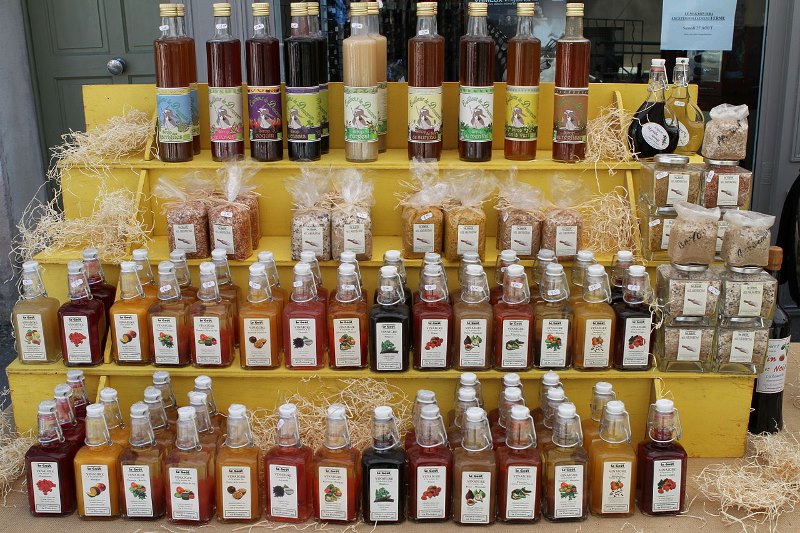
By Georges Seguin (Okki) – Own work, CC BY-SA 3.0, https://commons.wikimedia.org/w/index.php?curid=16326925
Did you know that you can make yeast at home?
The same is true of these:
- Mayonnaise
- Mustard
- Ketchup
This means you can make things like Thousand Island Dressing and Caesar Dressing from scratch. Providing you can make a substitute Worcester Sauce. Which you can do, providing you can make a substitute Soy Sauce. And on and on it goes.
The same is true of cheeses. Soft cheeses and cream cheeses are easy enough to make from scratch, although, for some, you’ll need rennet. Hard cheeses are, in many cases, soft cheeses that have been pressed over a period of time. So providing you have a cool, dark area you can spare for a year or so, you can make hard cheeses.
But, again, where do you draw the line?!
Where does cooking from scratch end and home baking begin?
You might decide that you’re still cooking from scratch if you’re using shop bought Thousand Island Dressing, for your Prawn Cocktail. Or you might decide that you have to make the Thousand Island Dressing, but it’s okay to use shop bought Ketchup. But how different is this, really, from buying the pre-cooked flan case for your quiche? Tomato Ketchup has more ingredients than a shortcrust pastry and takes longer to make…
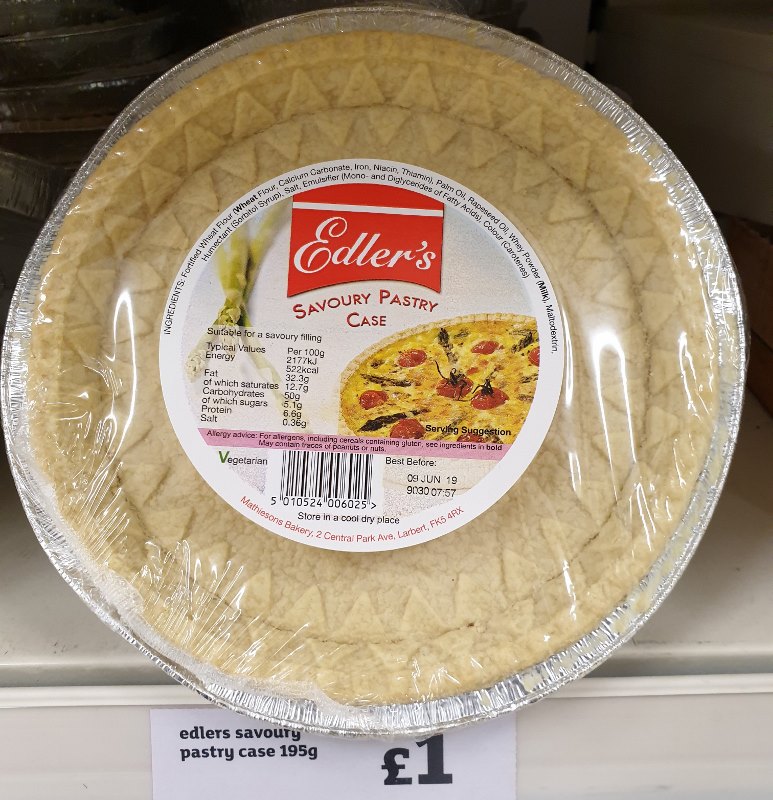
The funny thing is, that if you’re catering for, say, a Halloween Party; what does it matter where the food comes from, providing everyone enjoys the food?
It doesn’t!
And the closer you get to cooking from scratch, the more time is involved, as well as money. I’m lucky in that I have plenty of time to devote to my cooking. Many people are not so lucky and don’t have the time to even consider cooking from scratch. Which is why it’s great that so many other options are available.
Not that any of this helps with my attempt to define ‘cooking from scratch’.
I think maybe, the Great British Bake Off (GBBO) could offer a benchmark. Or the guidelines for Ceri’s upcoming practical exam for her Catering GCSE, which I’ll be posting about in a month or so.
Basically, it boils down to the Paul Hollywood Test. What would Paul Hollywood do if you took it into the GBBO tent?

By Tim Fields – Flickr: Paul Hollywood, CC BY 2.0, https://commons.wikimedia.org/w/index.php?curid=21534043
If you take it into the tent, as part of the ingredients for your Show Stopper, and Paul Hollywood shrugs; you’re cooking from scratch.
If you take it into the tent, and he purses his lips and shakes his head at the sight of it; you’re not cooking from scratch.
So, using shop bought butter to make your puff pastry is fine. Using shop bought puff pastry, however, might even earn you a tut. Not good!
Ultimately, though, it actually boils down to the the available time.
Ceri’s exam is three hours long. The time allowed for a Show Stopper can be up to six hours. When I’m preparing food for a party, I’ll take days.
As such, what is classed as cooking from scratch for me, is very different to what can be expected of Ceri. And certainly completely different than for someone who has half an hour between getting home from work, with the shopping, and the time the guests arrive. In this latter case maybe writing ‘Happy Birthday’, with an icing pen, on an otherwise decorated shop bought cake, counts as cooking from scratch?!
And that’s fine.
But for me, going forward, if I’m going to be cooking from scratch, it’ll need to pass the Paul Hollywood test.
